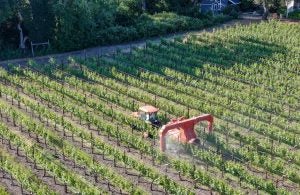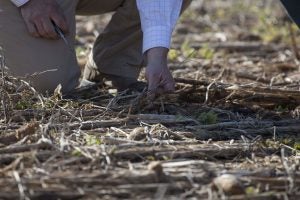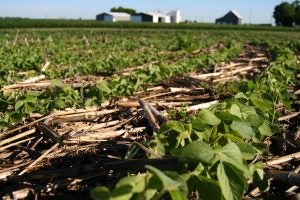“Hearsay is an out-of-court statement offered to prove the truth of the matter asserted.”
My least favorite class in law school was evidence. It’s a tedious subject with a bunch of technical rules and abstract concepts. Of those, hearsay is the worst. I can still hear my evidence professor saying the previous quote over and over again during the one-hour-and-40-minute-long class. I’m pretty sure she repeated it so often in hopes that we would memorize it.
But don’t let that simple statement fool you. Hearsay is so much more fun! Under the federal trial rules, there are 23 exceptions to the hearsay rule. Then there’s the hearsay statements that are considered non-hearsay. And that’s all before we get to state-specific precedent.
So I always find it really ironic when lay people are telling me something and then casually conclude a statement is hearsay. “Jan said she needed to purchase a new one because the old one is getting worn out. But that’s just hearsay.” Well, actually …
The same thing tends to happen in agriculture. People latch onto words and then casually throw them around like they know what it means. The most common — and obvious — is the line that “organic farmers don’t use pesticides.” Well, Karen, actually …

Most often this happens with the latest, trendiest fads. Whether most people know it, those fads are usually picked up by marketing companies, who develop entire campaigns around them. That’s how I end up with emails from random companies eager to share their commitment to whatever trend.
It happened recently. I received an email from a marketer touting the latest announcement from a well-known baking-goods company. She informed me that the company was committed to sustainability and mitigating their carbon footprint. To become more sustainable, the company pledged to source all of its wheat from farmers using regenerative production methods. Now to be fair, this was only one of several promises, but obviously it was the one that caught my attention.
So I did something absolutely crazy. I asked her how they define regenerative agriculture.
I anticipated her response. She said the company has a “fluid definition” without set standards and practices. But generally it meant more carbon in the soil and better soil health.
I agreed with her that farms shouldn’t have a one-size-fits-all approach — and I really meant it. What works for a farm in southern California won’t work for one near the beaches of Lake Michigan. The best production practices involve a calculation on a farm-to-farm basis that keeps in mind weather, soil type, seasons, and the crop involved. And most farmers are focusing more and more on healthy soils and the things they can do to promote them.
She gave me the right answer. But doesn’t that make the company’s pledge a bit wishy-washy?

The marketer again told me all the right stuff. Regenerative agriculture means farmers are economically viable and able to invest in soil health, clean water, and strong ecosystems. That reaching a goal like that means farms will look different depending on climates, soils, and other factors. And that the company would consult with crop specialists with expertise in the local areas where their wheat is grown.
Those are all fantastic things! It’s what I’ve said as an agriculture writer over the last decade! But it completely misses the point: Farmers are already doing this stuff without a fancy label or neat certification. Farmers want to use the best practices that will sustain their farm over the long term, both environmentally and economically. It’s just good business.
But this is what people want to hear: We’re sourcing all of our wheat from farmers that use regenerative practices! Why? Because of the almighty virtue signaling! Can we stop with the labels and certifications and programs? Because as soon as you say your farmers use regenerative methods, you’re implying that other farmers aren’t — and those other farmers are bad. You create an unnecessary divide. That’s the last thing agriculture needs as we face some momentous adversity.
There’s no set standards, no regulations, and no certifications. We’re all figuring this out as we go. And as long as we’re adapting and evolving as we learn more, that’s the point. That’s how you make progress.

After a couple of emails, she provided me with specific improvements they hope to see: improved soil health, increased biodiversity, carbon sequestration, increased nutrient diversity of crops, resilient farm ecosystems, and strong farming communities. Truthfully, none of those are too controversial.
So tell me that you’re investing in ag research and development to try new things and lead innovation with the hope that the practices will eventually be adopted by farmers around the world. Tell me you’re providing funds so farmers can invest in the equipment necessary to implement those new production methods. Tell me you’re investing in land-grant colleges to train agricultural professionals who can become the experts we need to consult on these issues. Tell me you’re supporting school science programs so our future population will have a greater understanding and appreciation for those tough topics. Tell me you’re supporting start-ups that are bringing new products to the market that reduce our carbon footprint.
Those are the things that will get me excited about your company and its sustainability goals. When you tell me that, there won’t be a, “Well, actually …”
Amanda Zaluckyj blogs under the name The Farmer’s Daughter USA. Her goal is to promote farmers and tackle the misinformation swirling around the U.S. food industry.



